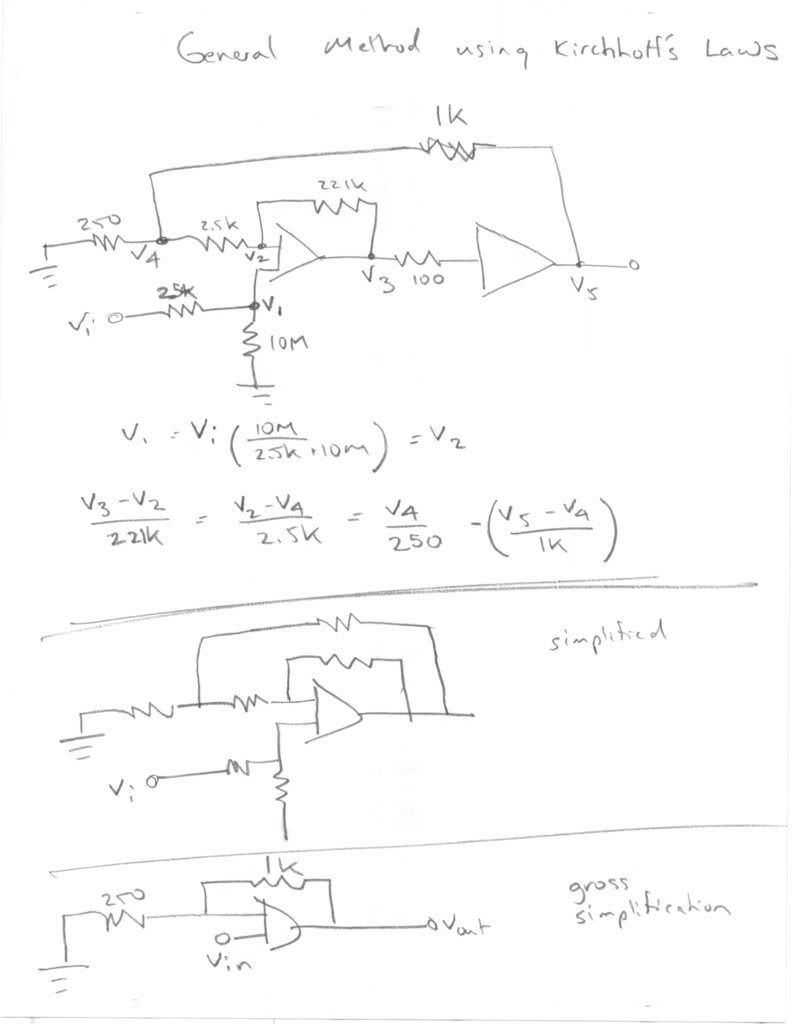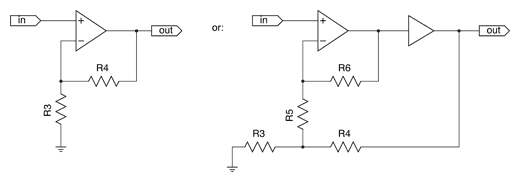FloydCouncil
100+ Head-Fier
- Joined
- Oct 14, 2005
- Posts
- 122
- Likes
- 33

Quote:
| a multi-stage opamp system (such as a voltage gain stage followed by a current buffer - see the section on output stages for more information), if the input stage opamp has a bipolar input stage and narrow open-loop bandwidth, it may exhibit nonlinearities when fed high level, high frequency signals. The system in figure 5d has an input stage opamp, which has had its open-loop bandwidth effectively extended under local feedback. The overall gain of the system is 5, but the local gain of the input stage is about 100 for an effective open-loop bandwidth of 100kHz. The bandwidth extension should go well beyond the audio range. |
Hello all,
I was studying the above schematic (from headwize) a while ago and trying to figure out its gain. From its description, I know its G = (1K/250 + 1) -- which is exactly the same as for a single op-amp in non-inverting configuration (i.e R2/R1 +1).
What I'm confused about is how did we come to this result? I can figure it out for a single op-amp using a simple voltage divider and making use of the ideal op-amp model, but am stuck when it comes to the above circuit.
The local gain of the first stage should be 1+[221K/(2.5K + 0.25)] or just 1+(221K/2.5K)?
Any help analyzing this would be greatly appreciated.




